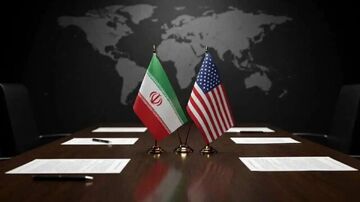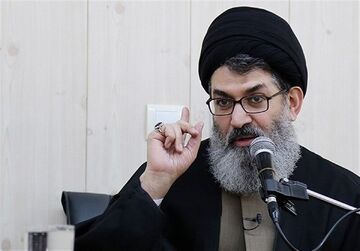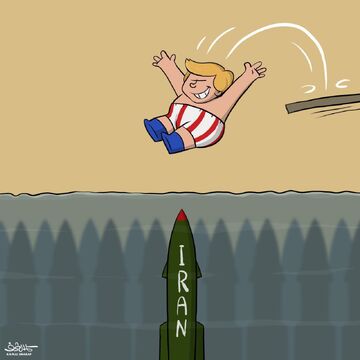Tehran(Bazaar): Afghanistan needs foreign support, especially economic, but this won't be forthcoming if the Taliban hosts certain groups. Without becoming part of China's Belt & Road Initiative (BRI), Afghanistan will remain economically isolated, Andrew Korybko tells Bazaar in an exclusive interview.
He also says that it's unimportant what the Afghan government's ultimate composition will be since all that China cares about is that peace is restored, no terrorist organizations find sanctuary there anymore, and Afghanistan joins BRI.
Korybko is an author, senior, journalist and faculty member at the Institute for Strategic and Futuristic Studies at the Russian Friendship University. A Moscow-based American political analyst specializing in the relationship between the US strategy in Afro-Eurasia, China's Belt & Road Initiative, and Hybrid Warfare.
Following is the text of the interview:
Bazaar: The Taliban can put pressure on China through the Uighur Muslims. On the other hand, the group promised Beijing not to use this leaf. If the Taliban play an effective role in power, what will be its approach to China? If the Taliban wants to use Uyghur leaves and make China's Xinjiang province insecure, what will be the effects on One Belt_One Road project?
Korybko: As it stands, this is a purely speculative scenario since the Taliban recently agreed during its representatives' latest trip to China not to host members of the so-called “East Turkestan Islamic Movement” (ETIM).
Just because it theoretically can do so doesn't mean that it'll realistically do so. China's recent hosting of the Taliban in Tianjin speaks to the group's desire to expand pragmatic ties with the People's Republic.
From this factual development, a few inferences can be made about the Taliban's policies. Firstly, its extremely strict interpretation of Islam no longer automatically means that it'll automatically support all other groups that share the same ideology like before.
Providing sanctuary to foreign individuals or organizations regarded as terrorists by others, such as how Osama Bin Laden and Al Qaeda were sheltered in Afghanistan before 9/11, is counterproductive to the Taliban's purely domestic aims since it creates international problems with unpredictable consequences.
The second point builds upon the preceding one by emphasizing that the Taliban is focused solely on obtaining domestic objectives. It doesn't aspire to expand its self-styled emirate beyond Afghanistan's internationally recognized borders even if it might still sympathize with other groups that want to emulate its model in their own countries.
The Taliban's last time in power saw it become an international pariah deprived of any significant foreign funding and isolated from the world to its detriment. It doesn't want to repeat that mistake.
In pursuit of this much more pragmatic vision upon its planned return to power, the third point is that the Taliban is becoming increasingly aware of how some of its prior policies can inadvertently provoke the international community and thus end up counterproductive to its domestic goals.
Afghanistan needs foreign support, especially economic, but this won't be forthcoming if the Taliban hosts certain groups. Without becoming part of China's Belt & Road Initiative (BRI), Afghanistan will remain economically isolated.
Fourthly, it therefore naturally follows that the Taliban will not risk provoking China's ire by hosting ETIM and thus inadvertently isolating Afghanistan if the People's Republic declines to include it into BRI for security reasons.
This explains why the Taliban is extremely unlikely to go back on its word by re-embracing ETIM. Doing so would reverse all of the group's recent soft power gains across the world and thus result in its inevitable economic isolation from BRI.
The final point that can be inferred from the Taliban's trip to Tianjin is that the group's leadership would likely punish those renegade members who might refuse to fall in line with its anti-ETIM policy.
In the unlikely event that some hyper-radicalized Taliban members continued supporting that Uyghur terrorist group, perhaps at a foreign party's urging such as the US' and/or ISIS-K's, the official Taliban movement would disown them and probably even end up fighting those former members who the group would then regard as genuine terrorists.
Bazaar: What impact can the civil war, growing insecurity in Afghanistan, and the Taliban's possible domination of the country have on China-Afghan relations and in particular on Afghanistan's participation in BRI? To what extent would BRI be economically beneficial for Afghanistan?
Korybko: China has three primary goals in Afghanistan: facilitating a peaceful political solution to the Afghan Civil War; which would ensure that the country doesn't become a sanctuary for foreign terrorist organizations like the ETIM; and only then Afghanistan can play a leading role in BRI due to its geostrategic location.
With these objectives in mind, one can more accurately intuit how China regards the Afghan Civil War, the country's growing insecurity as a result, and the Taliban's possible return to power there. Although China supports peace, it isn't able to directly shape events on the ground there in pursuit of this noble goal. All that it can do is provide a platform for each warring side to discuss a political solution.
In support of that, however, China can share its economic vision for post-war Afghanistan in order to incentivize everyone to pragmatically compromise as soon as possible so as to take advantage of these mutually beneficial plans.
It's unimportant what the Afghan government's ultimate composition will be since all that China cares about is that peace is restored, no terrorist organizations find sanctuary there anymore, and Afghanistan joins BRI.
The Taliban shares two out of three of these goals: preventing foreign terrorists from finding sanctuary in Afghanistan and joining BRI. Although it preaches its desire for a political solution to the Afghan Civil War, it's also simultaneously making rapid gains on the ground.
This might be for negotiating leverage or as part of a militant backup plan in case peace talks fail. Either way, observers are justified in being skeptical of the Taliban's peaceful intentions. Nevertheless, as long as it fights terrorism and joins BRI, China isn't too concerned. Of course, the longer that the Afghan Civil War rages, the more opportunities might emerge for foreign terrorist organizations like ISIS-K and ETIM to exploit.
That's why China hopes for a political solution as soon as possible, but since it lacks the ability to directly shape events on the ground there, it'll have to be content with the fact that the Taliban at least shares two out of three of the same goals.
It's already a major achievement in and of itself that the Taliban agreed last year not to host any foreign terrorist groups ever again, which in turn creates a much more secure environment in which BRI might then expand to post-war Afghanistan.
Bazaar: To what extent does the meeting between the Taliban and the Chinese Foreign Minister affect the relations between the countries participating in BRI?
Korybko: All of Afghanistan's neighbors will benefit from the Taliban's earlier agreement not to host foreign terrorist organizations and BRI's subsequently planned expansion to post-war Afghanistan.
There are two envisioned BRI-linked corridors that will transit through the country once its war comes to an end and the foreign terrorist organizations there are exterminated: the Pakistan-Afghanistan-Uzbekistan (PAKAFUZ) railway that was agreed to in February (which functions as the northern expansion of CPEC) and the “Persian Corridor” between China and Iran via eastern Tajikistan's mountainous Gorno-Badakhstan Autonomous Oblast and Afghanistan. Neither project can realistically get off the ground unless peace returns to Afghanistan and foreign terrorist organizations there are exterminated.
Since the Taliban plans to end the war one way or another by preaching peace while simultaneously making on-the-ground gains and is nowadays also against allying with any foreign terrorist organizations, this naturally advances the interests of all of Afghanistan's BRI-linked stakeholders. All of them want peace and none of them want to see foreign terrorist organizations active in Afghanistan.
They all want to integrate more closely with one another through BRI. For this reason, all neighboring stakeholders should support the pragmatic outcome of the Taliban's recent trip to Tianjin.
China wields immense economic influence everywhere in the world and is perhaps the only stakeholder capable of presenting credible plans for Afghanistan's sustainable post-war reconstruction.
It's in everyone's interest, including the Taliban's, to have Afghanistan peaceful, free of foreign terrorist organizations, and as an integral member of BRI. Some stakeholders like Iran might not feel comfortable praising the Taliban due to their history of complicated ties, but they should nevertheless appreciate its strategic pragmatism.
















نظر شما